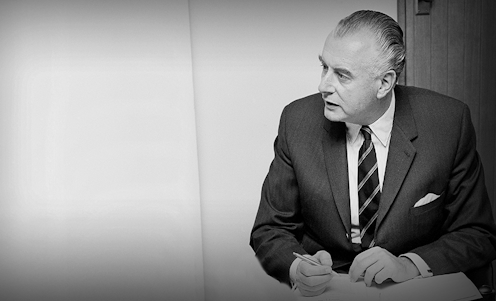
At a time when governments are timid, keener to announce reviews than decisions, it’s refreshing to remember what happened 50 years ago today – on July 18 1973.
Inflation had surged to 14%. Australia’s biggest customer, the United Kingdom, had joined the European Economic Community, agreeing to buy products from it rather than Australia. And the newly formed Organisation of Arab Petroleum Exporting Countries had doubled the price of oil.
The tariffs imposed on imported goods to protect Australian manufacturers from competition were extraordinarily high. For clothing, they reached 55%; for motor vehicles, 45%.
Then, with absolutely no public indication he had been considering anything as drastic, at 7pm on Wednesday July 18, the recently elected prime minister Gough Whitlam made an announcement.
Every tariff cut by one quarter overnight
From midnight, all tariffs would be cut by 25%. As Whitlam put it: “each tariff will be reduced by one quarter of what it is now”.

Authors: Alex Millmow, Senior Fellow, Federation University Australia
Read more








